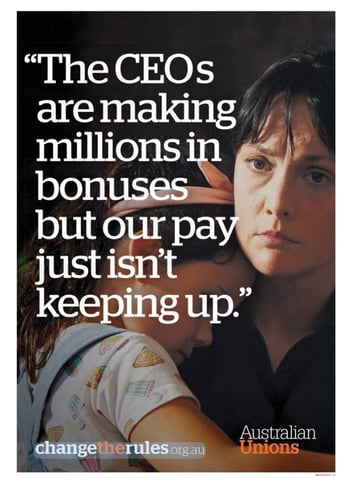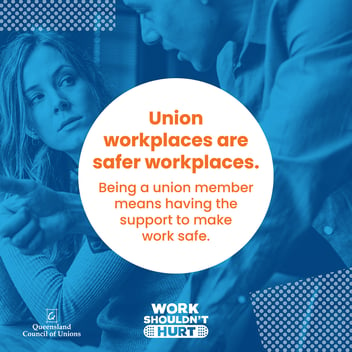Unions win 2.5 percent increase in national minimum wage
Unions have won a 2.5 per cent pay rise for 500,000 Queensland workers on award rates after today’s Fair Work Commission minimum wage case decision.
The federal commission increased the current minimum wage of $19.84 hour to $20.33 per hour, which is $18.80 per week for a full-time worker on the minimum wage.
Around 2.2 million workers across the country will have more money in their pocket, but Australian Unions had been calling for a 3.5 per cent boost to the wages benchmark.
Queensland Council of Unions General Secretary Michael Clifford said today’s decision of 2.5 per cent will not be enough to make up for years of stagnant wages growth.
Additionally, workers under industry awards in aviation, tourism, fitness and certain areas of retail will have to wait months to receive the increase.
In Queensland, almost half a million workers on awards are affected by today’s decision.
On average, they currently make $724.60 a week, compared with the national average of $787.70.
However, unions are disappointed that the Commission has decided to delay this increase for hundreds of thousands of workers, including those in retail where many companies have posted record profits.
“Limiting the wage rise to 2.5 per cent is an insult for many of the low-paid workers who kept our economy going during this crisis – our cleaners, supermarket workers and delivery workers, our health and aged care workers.
Workers in those industries had last year’s 1.75 per cent minimum wage increase delayed by the Fair Work Commission.
“Now they are doing it again to workers in other industries,” he said.
The Commission has delayed the increase for aviation, fitness, tourism and parts of retail and events until the 1st of November and for the bulk of the retail sector until the 1st of September.
“Those workers should not miss out again on a pay rise when they need it most,” he said.
“The wage growth problem has become worse with the largest surge of insecure jobs in our nation’s history in the last six months,” he said.
“Job insecurity feeds low wage growth. The federal budget assumes consumer spending will increase to recover from the impact of COVID-19 but how will it increase if wages are not growing quickly enough?
“The recovery is being driven by consumer spending, which is unsustainable without decent wage rises and more job security for working people,” he said.
He condemned the Morrison Government failing to support a greater increase in the minimum wage.
The 2.5 per cent increase is significantly higher than anything supported by either the Federal Government or big business.
“Perhaps the Coalition is more concerned with upsetting its friends in big business like Gerry Harvey who are putting their energies into arguing for pay cuts and wage freezes,” said Mr Clifford.
“We need a recovery which provides for the working people who carried us through the pandemic.”



